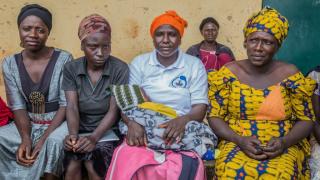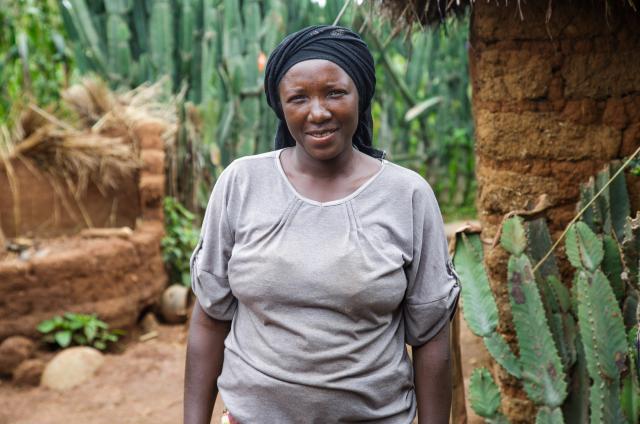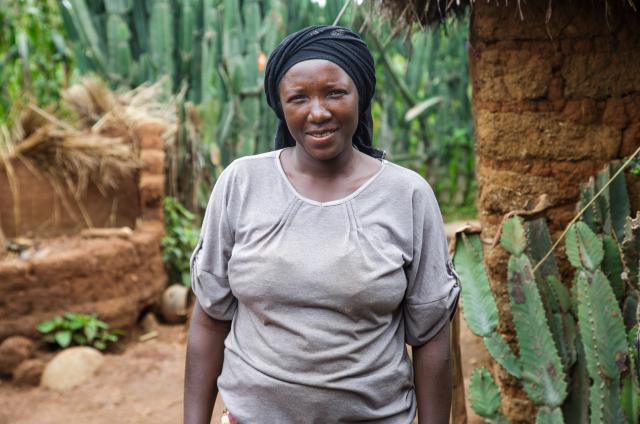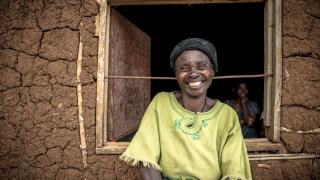Zainab - Nigeria
My name is Zainab
Throughout my life I have faced many hardships.
As a young girl, my parents separated and I had to live with my aunt. I never knew what it was to experience the love and attention of a mother or a father. I went to primary school, but when I was six years old, my aunt made me sell milk before school and during breaks. It was exhausting.
I was so happy when I got married. I felt that my life would be much better as I would have someone to confide in, have less housework and suffer less. But things didn’t turn out as I thought.
My husband married a second wife and he stopped listening to me and whenever I had a misunderstanding with my co-wife, he would beat me without hearing my side of the story. Sometimes he even refused to give me money to feed myself and our children. This was not the case with my co-wife, whom he loved and treated well.
In addition, political instability and unrest meant we had to run to the military barracks. But we discovered that the place was overcrowded, as people had already run there for safety. We had to sleep under a tree for five days because the barracks were too full. Eventually we decided to move to escape the tension where we lived. We left with just a small mattress, a few of our clothes, and a little bit of food.
We moved into a mud house and I began to sell small amounts of soup condiments on a table in front of the house to help me make ends meet and to pay for my children’s food.
The turning point in my life is when I joined Women for Women International.
The greatest change in my life is the emotional relief I have received from the trainings offered. The programme has helped me to build friendships with women of other religions and tribes. We support each other emotionally and financially when need be. I visit their homes and they also visit mine.
I never believed that I had rights, nor did I understand gender equality. I have always been taught that a woman has no rights until marriage, and when married, her right ends with caring for her family. If she had to claim any other right, it had to be given to her by her husband.
During the sessions on decision-making and women’s rights, my eyes were opened. It made me appreciate myself more as a human being.
Practicing what I learned was not easy, because I have always revered my husband. At first, it turned out badly for me since he took my respect for granted. On one occasion, he beat me and asked me to leave the house. Usually, when my husband would insult or beat me, I would look for somewhere to sit and then cry my eyes out. After some time, I would go and apologise to him.
This time, I refused to cry. Instead I kept calm and then walked up to him, and I told him that if he wants me to leave the house, he should take me back to my people where he married me. My calmness surprised him and my co-wife, because they expected to see the usual crying and pleading Zainab.
All of this happened in front of our house. My husband did not know how to react because I have never talked to him with such boldness during any misunderstanding. Before long, neighbours came to plead with me to stay and not leave the house. This greatly embarrassed my husband, because he had been seen as the best of husbands in the neighbourhood. Since then, he never speaks to me disrespectfully and he has never raised his hand again on me.
For reasons of security and privacy, we are using a photo of a different Women for Women International graduate to represent the woman in the story.

Our work in Nigeria
With limited access to health services and education, patriarchal norms, and mounting violence, Nigerian women struggle to gain economic opportunities and equality. Common discriminatory practices, amplified by extremist groups, subject women and girls to dangers, including forced early marriage and the possibility they will face violence for going to school.
Read more stories
Sabina
subtitle: Bosnia and Herzegovina
The programme gave me the courage and the skills I needed. Other women encouraged me and gave me new ideas. I am proud to say I am a beekeeper. It gives me a lot of self-confidence.
Grace
subtitle:
I was alone and had to take care of the children who were all very young at the time. I couldn’t imagine them growing without their father around. He was the one who provided for them.
Claudine
subtitle:
I know that I should take courage because I survived a hard situation. Every day, I have to wake up and pray and say, thank you God, for I’m still alive. It was hard but now I’m here.





